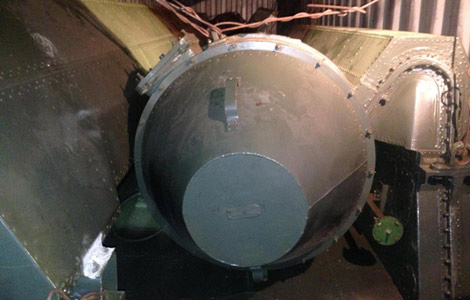Two-way fluctuation essential for RMB exchange rate reform
Updated: 2013-07-17 15:43
(Xinhua)
|
||||||||
WASHINGTON - Two-way fluctuation of the Chinese currency renminbi exchange rate is essential for China's exchange rate reform, an expert from a US think tank said.
Two-way fluctuation
"I think an important part of the reform is recognizing that flexible exchange rate policy for China, which is good for China and good for the world, means that the exchange rate needs to move up and down," Yukon Huang, a senior associate with the Asia Program of the Carnegie Endowment for International Peace, told Xinhua.
"It cannot be consistently always appreciating because an exchange rate which is only moving in one direction encourages speculation and that's not actually very good," he said in a recent interview on China's exchange rate reform initiated in 2005.
As the Chinese economy is slowing down and its trade surplus shrank to about 2 percent of gross domestic product (GDP), Huang believed that it is really important now for the country to boost the flexibility of renminbi exchange rate.
"If there's a period where the exchange rate of renminbi actually depreciates for a couple of months, that's fine," he said.
The renminbi has nominally appreciated against the strong US dollar by about 2 percent since the beginning of this year, while many emerging market currencies depreciated sharply in the same period.
"So successful reform of the exchange rate regime is when you realize that the exchange rate can move both ways and speculators of markets can no longer predict the direction of change," Huang argued.
"I think that's slowly happening and I think it is very good for China," he added.
Yi Gang, deputy governor of the People's Bank of China, also told a press briefing last week that there had been two-way fluctuation expectations of renminbi exchange rate in the recent spot and forward exchange rate markets, which indicated that the Chinese currency had become more market-oriented.
As a very important feature of the exchange rate reform, the supply-and-demand relation in the market will play a more important role in deciding the exchange rate of renminbi, Yi noted.
Investing overseas
Huang said it is unrealistic for China in the next two years to accomplish capital account convertibility, which requires strong financial institutions, deep capital markets, especially a well-developed domestic bond market, and investors' financial education.
However, he said China should continue to remove restrictions of capital flows and encourage Chinese companies and households to invest overseas, dismissing concerns on massive capital outflows.
Most Viewed
Editor's Picks

|

|

|

|

|

|
Today's Top News
Royals 'waiting by telephone' for Kate's baby
US attorney general questions gun law
China's US T-bill holdings hit record in May
iPhone death probed by Apple
Spring agency flourishes with travelers to US
Chinese textile industry aims for 'green'
GM's sales up 4% on strong US, China demand
New visa law offers lifeline to foreigners
US Weekly

|

|













